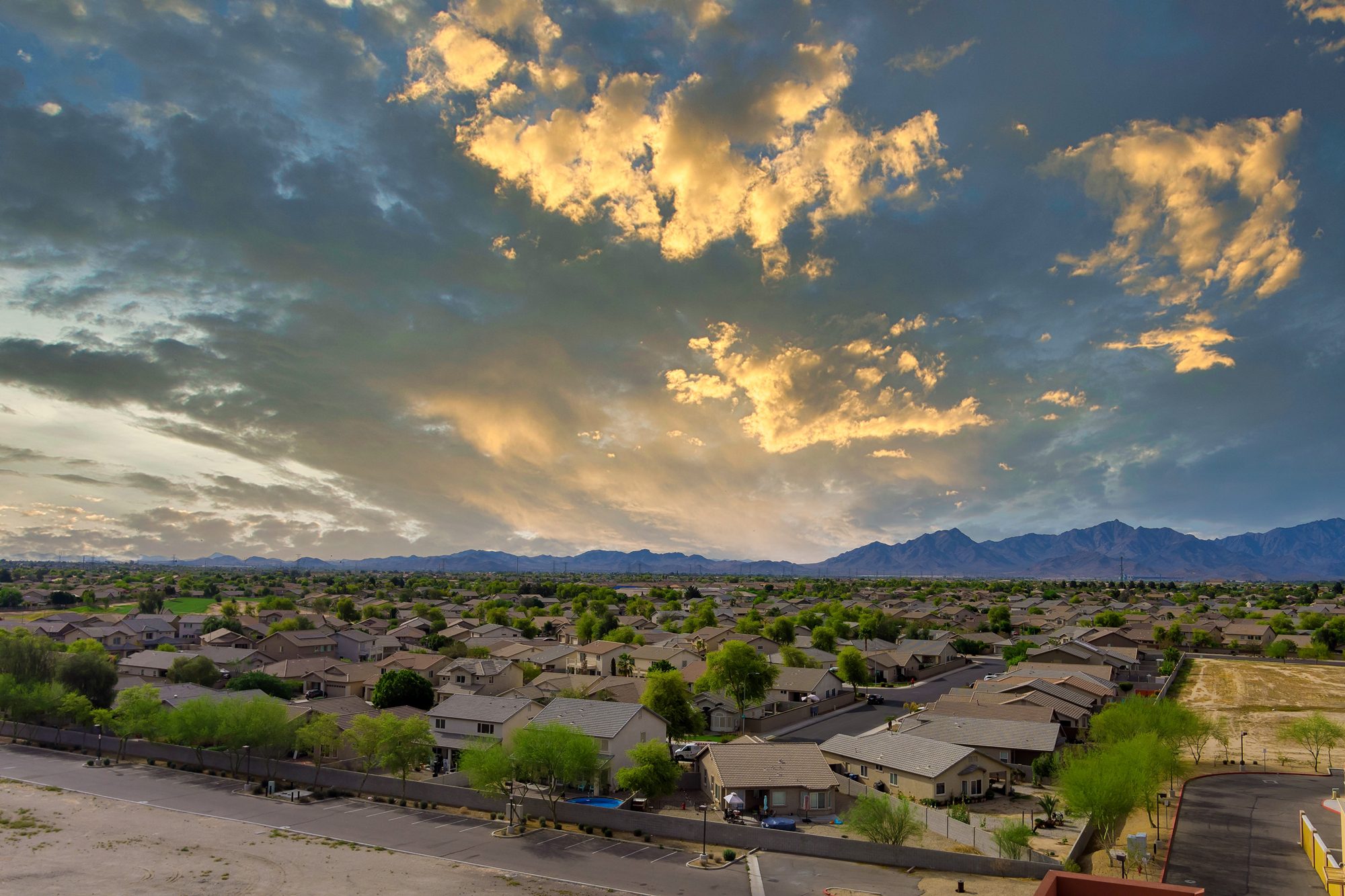- New law allows housing development using water from retired farmland.
- Legislation passed with bipartisan support after two years of negotiation.
- Officials say it will conserve water while easing Arizona’s housing shortage.
- Rural leaders express disappointment over lack of groundwater protections.
Monday, June 30, 2025 — Arizona Governor Katie Hobbs is expected to Senate Bill 1611 today, a bipartisan measure that allows developers to purchase water rights from voluntarily retired farmland in Maricopa and Pinal counties. The bill, known as the “ag-to-urban” transfer law, permits the conversion of agricultural water to urban use if the new homes consume only a portion of the water previously used on farms. Developers must also meet Arizona’s longstanding requirement of proving a 100-year assured water supply before building.
This legislative breakthrough follows a 2023 moratorium on new housing in some Phoenix suburbs, imposed by the Arizona Department of Water Resources after new data showed groundwater shortfalls. The moratorium left tens of thousands of planned homes without the legal assurance of water. Senate President Pro Tempore T.J. Shope , the bill’s sponsor, described the new law as the most significant water legislation since the 1980 Groundwater Management Act. Shope said up to 400,000 acres of farmland could qualify for the program, potentially enabling construction of a million homes while reducing overall water use.
, the bill’s sponsor, described the new law as the most significant water legislation since the 1980 Groundwater Management Act. Shope said up to 400,000 acres of farmland could qualify for the program, potentially enabling construction of a million homes while reducing overall water use.
Supporters Hail Law as Balanced and Voluntary.
Supporters say the bill balances growth and water conservation. According to the Arizona Water Company , which praised the bill in a June 30 press release, retired farmland can now generate groundwater savings credits that developers may use to meet legal water requirements. The company emphasized that residential development typically consumes far less water—1 to 1.5 acre-feet per year—than farming, which may use up to 6 acre-feet. Fred Schneider, President of Arizona Water Company, called the legislation “a national model” and pledged collaboration to ensure its successful rollout.
, which praised the bill in a June 30 press release, retired farmland can now generate groundwater savings credits that developers may use to meet legal water requirements. The company emphasized that residential development typically consumes far less water—1 to 1.5 acre-feet per year—than farming, which may use up to 6 acre-feet. Fred Schneider, President of Arizona Water Company, called the legislation “a national model” and pledged collaboration to ensure its successful rollout.
The bill earned praise from agricultural groups and local officials. “This is the most consequential piece of groundwater legislation since the 1980s Groundwater Management Act,” said Shope , citing an analysis that projects 9.6 million acre-feet of water savings over the next century. Casa Grande Mayor Lisa Navarro Fitzgibbons and Pinal County Supervisor Stephen Miller also voiced strong support, highlighting the bill’s economic and environmental benefits.
, citing an analysis that projects 9.6 million acre-feet of water savings over the next century. Casa Grande Mayor Lisa Navarro Fitzgibbons and Pinal County Supervisor Stephen Miller also voiced strong support, highlighting the bill’s economic and environmental benefits.
Critics Say Rural Water Needs Were Ignored.
While the law received bipartisan backing, not all lawmakers and local leaders were satisfied . Rural officials and Democrats expressed frustration that the final bill excluded new protections for Arizona’s rural groundwater basins. Mohave County Supervisor Travis Lingenfelter called the outcome a missed opportunity to address long-standing concerns over unrestricted pumping in unregulated areas. “We represent almost 650,000 rural Arizonans that don’t have any water security at all,” he said.
. Rural officials and Democrats expressed frustration that the final bill excluded new protections for Arizona’s rural groundwater basins. Mohave County Supervisor Travis Lingenfelter called the outcome a missed opportunity to address long-standing concerns over unrestricted pumping in unregulated areas. “We represent almost 650,000 rural Arizonans that don’t have any water security at all,” he said.
Similarly, Rep. Chris Mathis of Tucson criticized the legislature for not advancing other water-saving proposals, including a bipartisan rural groundwater management bill that never received a hearing. Willcox Mayor Gary Hancock echoed the sentiment, saying it was hard to watch the state’s focus shift away from rural communities that also depend on scarce water supplies.
criticized the legislature for not advancing other water-saving proposals, including a bipartisan rural groundwater management bill that never received a hearing. Willcox Mayor Gary Hancock echoed the sentiment, saying it was hard to watch the state’s focus shift away from rural communities that also depend on scarce water supplies.
Bill Advances Amid Housing Shortage and Groundwater Strains.
Arizona faces an estimated shortfall of 270,000 housing units statewide, according to the Department of Housing. Shope said that supply gap has contributed to a more than 50% rise in the median home price over the last five years. With new development pathways now opening in the Phoenix and Pinal Active Management Areas, state leaders hope to ease the pressure on both housing costs and groundwater usage. However, whether the new law will eventually be expanded to other regions, such as the Pima Active Management Area, may depend on future regulatory actions.
As stakeholders prepare for implementation, officials including Rep. Teresa Martinez say the ag-to-urban law strikes a critical balance between economic development and groundwater protection. “It promotes smart growth while conserving groundwater,” Martinez stated in the Arizona Water Company press release. The law’s success, however, may ultimately hinge on how effectively it delivers both promises across Arizona’s diverse regions.
The law’s success, however, may ultimately hinge on how effectively it delivers both promises across Arizona’s diverse regions.

